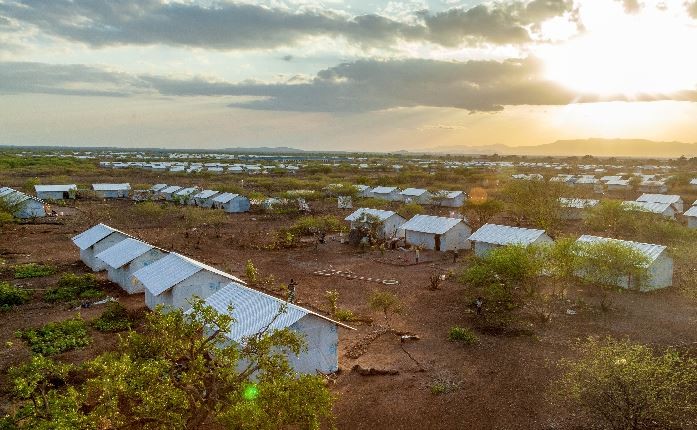Refugees in Kenya camps ‘slowly starving’ – UN says
Hundreds of thousands of people are “slowly starving” in Kenyan refugee camps after US aid funding cuts reduced food rations to their lowest ever levels, the United Nations has reported.
One of the worst affected camps is the sprawling Kakuma camp in the north-west of Kenya, which is home to around 300,000 refugees who have fled strife in countries across Africa and the Middle East.
At Kakuma, food rations have been halved and each refugee now receives three kilograms of rice per month, far below the nine kilograms recommended by the UN for optimal nutrition.
Also, monthly cash transfers that refugees used to buy proteins and vegetables to supplement the rice, lentils and cooking oil distributed by World Food Program ended recently.
Previous ration cuts led to protests in March.
The World Food Program hopes to receive the next donation of rice by August. That’s along with one kilogram of lentils and 500 millilitres of cooking oil per person.
The US had provided around 70 per cent of the funding for the WFP’s operations in Kenya.
The WFP says that as a result of the cuts, the agency has had to slash the refugees’ rations to 30 per cent of the minimum recommended amount a person should eat to stay healthy.
“If we have a protracted situation where this is what we can manage, then basically we have a slowly starving population,” the WFP’s head of refugee operations in Kenya Felic Okech told media.
Until this year, the UN was giving around $US4m in cash directly to refugees in Kenya’s camps each month, intended to allow families to buy basic supplies.
The cash also allowed families to start vegetable gardens and raise chickens to sell to other camp residents.
But the discontinuation of the cash transfers, locally known as “bamba chakula”, has meant that the market faces collapse.
The shrinking rations have led to rising cases of malnutrition among children under 5 and pregnant and breastfeeding mothers.
At Kakuma’s largest hospital, run by the International Rescue Committee, children with malnutrition are given fortified formula milk.
Mr Buleti said the agency was urgently seeking help from donors.
“Come August, we are likely to see a more difficult scenario. If WFP doesn’t receive any funding between now and then, it means only a fraction of the refugees will be able to get assistance. It means only the most extremely vulnerable will be targeted,” he said.













